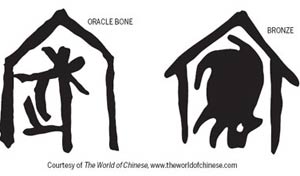Old political games unhelpful to cure US maladies
Updated: 2011-10-12 10:33
(Xinhua)
|
|||||||||
BEIJING - The US Senate, in callous disregard of Beijing's strong opposition, passed a bill on Tuesday to press China to appreciate its currency, throwing bilateral trade into potential jeopardy.
With the move, some US politicians are once again wooing voters by making China out to be a scapegoat for the country's domestic troubles before next year's presidential election.
However, just as in previous attempts, the Senate has taken the wrong medicine in an effort to cure US chronic economic malaise.
The bill, whose passage would potentially pave the way for Washington to put a "currency manipulator" tag on Beijing and thus impose punitive tariffs on imports from China, is widely regarded as a blatant violation of free trade norms.
US President Barack Obama and House Speaker John Boehner even have voiced "concerns" over the Senate move. The White House said the maneuver could "fall foul of" rules of the World Trade Organization, while Boehner warned that it was "pretty dangerous" to force a country to revalue its currency.
The bill still needs the House's endorsement and Obama's signature to become law but what the US Senate did planted a ticking time-bomb that may ignite a potential trade war between the world's two largest economies.
The possible US unilateral imposition of high duties on Chinese imports on the pretext of Beijing's alleged currency manipulation would certainly lead to China's retaliation.
Chinese Vice Foreign Minister Cui Tiankai said Monday that the US move in no way represents the reality of the economic and trade relationship between China and the United States and that it might have an adverse impact on bilateral ties.
The current bilateral trade imbalance is not caused by the so-called yuan undervaluation, but by the structural shift in the United States to a service-based economy and Washington's unwise curbs on high-tech exports to China.
In fact, the Chinese yuan has appreciated about 30 percent against the US dollar since China began to restart the process of the exchange rate reform in 2005.
Currently the United States is troubled by stubbornly high unemployment but hyping the Chinese currency issue misses the point.
In early September, Obama announced the ambitious American Jobs Act, which was reported to support nearly 400,000 education jobs and prevent the layoffs of educators.
However, the two US major parties have been engaged in endless disputes over the proposal, hamstringing the government in its efforts to tame the staggering unemployment rate.
US lawmakers must realize that should Chinese products become more expensive due to increased high duties laid out in the Senate bill, rational American shoppers would simply turn to other low-wage countries such as Indonesia and Vietnam for imported products.
Washington's habitual China-bashing has been proved detrimental to its economy, and the current currency bill is no exception. It will only set up obstacles in growing China-US trade ties.
Therefore, it is wise for the House of Representatives and the White House to act to stop the bill, which, if it becomes law, will surely not only harm the China-US economic ties, but also the world's economic recovery.









